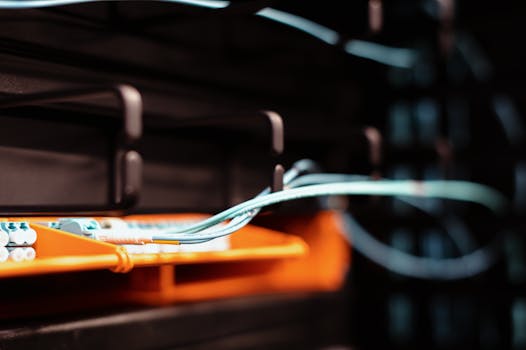
The Role of Fiber Companies in Africa’s Smart City Initiatives
Fiber companies are playing a crucial role in Africa’s smart city initiatives, providing high-speed internet connectivity and enabling the development of smart infrastructure. As the continent continues to urbanize, the demand for reliable and efficient connectivity is increasing, and fiber companies are at the forefront of meeting this demand.
Introduction to Smart City Initiatives in Africa
Africa is undergoing rapid urbanization, with many cities experiencing rapid growth and development. This growth has put a strain on existing infrastructure, and there is a need for innovative solutions to manage the challenges that come with urbanization. Smart city initiatives are being implemented across the continent, with the goal of creating sustainable, efficient, and livable cities. These initiatives rely heavily on technology and data analytics to manage resources, transportation, and other urban systems.
Fiber companies are essential to the success of these initiatives, as they provide the high-speed internet connectivity that is necessary for the implementation of smart city technologies. Fiber optic cables are being laid across the continent, connecting cities and towns and enabling the development of smart infrastructure.
The Role of Fiber Companies in Smart City Development
Fiber companies are playing a crucial role in the development of smart cities in Africa. They are providing the high-speed internet connectivity that is necessary for the implementation of smart city technologies, such as intelligent transportation systems, smart grids, and public safety systems. Fiber companies are also working with city planners and governments to design and implement smart city infrastructure, including fiber optic networks, data centers, and cloud computing services.
One of the key benefits of fiber companies in smart city development is the ability to provide high-speed internet connectivity to underserved communities. Many African cities have large populations that lack access to reliable and affordable internet connectivity, and fiber companies are helping to bridge this digital divide. By providing high-speed internet connectivity, fiber companies are enabling communities to access essential services, such as healthcare, education, and financial services.
Fiber companies are also working with startups and entrepreneurs to develop innovative solutions to urban challenges. For example, some fiber companies are partnering with startups to develop smart traffic management systems, while others are working with entrepreneurs to develop innovative solutions to waste management and public safety.
Challenges Facing Fiber Companies in Africa
Despite the many opportunities for fiber companies in Africa’s smart city initiatives, there are also several challenges that must be addressed. One of the key challenges is the lack of infrastructure in many African cities. In many cases, fiber optic cables must be laid from scratch, which can be a time-consuming and expensive process.
Another challenge facing fiber companies is the regulatory environment in many African countries. In some cases, regulatory frameworks are unclear or unfavorable, making it difficult for fiber companies to operate. Additionally, some governments have imposed restrictive regulations on the use of fiber optic cables, which can limit the ability of fiber companies to provide high-speed internet connectivity.
Finally, fiber companies in Africa must also contend with the challenge of cybersecurity. As the use of smart city technologies increases, so too does the risk of cyber attacks. Fiber companies must invest in robust security measures to protect their networks and ensure the integrity of the data that is being transmitted.
Conclusion
In conclusion, fiber companies are playing a crucial role in Africa’s smart city initiatives, providing high-speed internet connectivity and enabling the development of smart infrastructure. While there are challenges that must be addressed, the opportunities for fiber companies in Africa are significant. As the continent continues to urbanize, the demand for reliable and efficient connectivity will only increase, and fiber companies are well-positioned to meet this demand.




